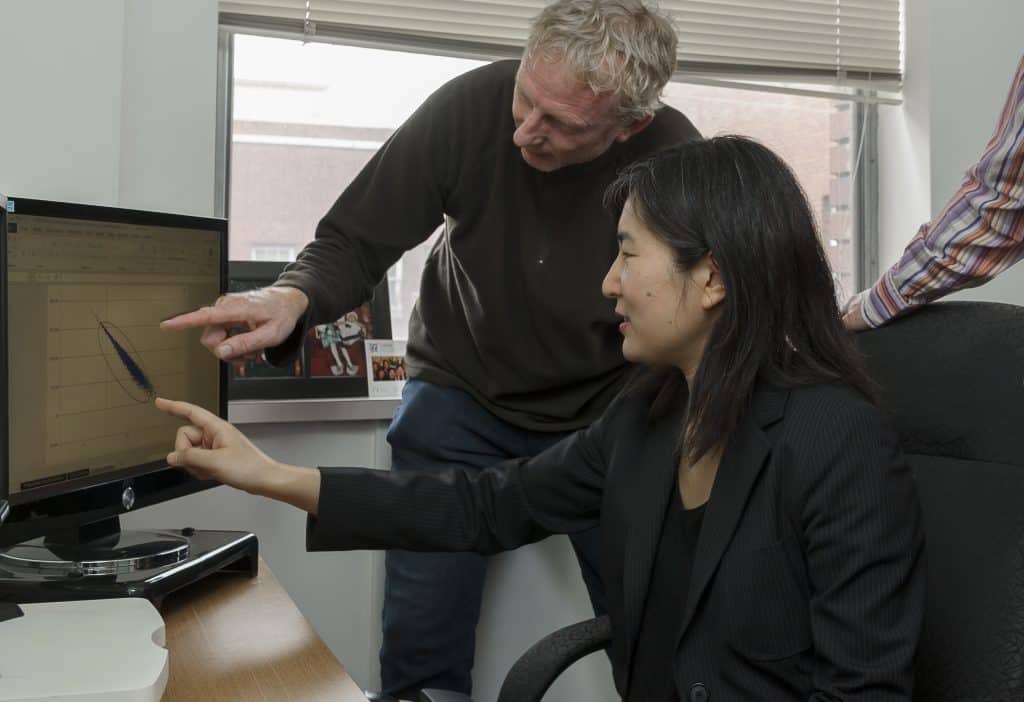Understanding how to improve health care for an individual can be complicated: Which treatment will be most effective? What is the likelihood that a disease will be detected by a screening test? These questions become even more complex when considering factors surrounding the health problem, from its root causes to how a person interacts with the health care system.
Now, consider the layers of complexity that are added when trying to understand these factors across an entire population of a province or country. It is this complex web of factors that the Centre for Health Evaluation and Outcome Sciences, or CHÉOS, seeks to unravel.
How do we improve the prevention or treatment of disease in large populations? How do we optimize disease screening? How do we make health care financially sustainable into the future? How do we make health care more equitable for all types of people? These are the real-world questions tackled at CHÉOS, a joint research centre of the Providence Health Care Research Institute and the UBC Faculty of Medicine.
Answering the big questions
Unearthing evidence to answer the pressing health care questions of today requires diverse expertise. For this reason, the 75 scientists (and growing) at CHÉOS are organized into research programs that focus on specific parts of the health system, like clinical trials, biostatistics, and health services research.
“Having many different types of researchers to collaborate with allows us to address more complex problems, and in a more complete way, than we would be able to do in isolation,” said Dr. Wei Zhang, head of the health economics program at CHÉOS.
Addressing these problems from a population-level perspective means that CHÉOS research is often poised to make real-world impact, from policy decisions to medical practice.
One example of this is the CHÉOS-led Foundry project which has fundamentally changed the way the health system treats young people in British Columbia who are living with mental health complications.
Another project, led by Dr. Nadia Khan, identified the importance of culturally sensitive care in chronic disease management, leading to changes in how ethnicity is considered in health programs and the establishment of the South Asian Health Centre, the first of its kind in Canada.
The ongoing CODE-MI Study, led by Dr. Karin Humphries, looks to change the way women are diagnosed with heart attack and to close the gaps in the diagnosis and treatment of heart disease compared to men.
Many of the projects at CHÉOS are providing policy makers and administrators with the tools improve the health system, like Dr. Jason Sutherland’s work to address surgical wait times or Dr. Wei Zhang’s novel methodology to measure the economic impact of specific diseases on work productivity.
It takes a team
The scientists at CHÉOS are only half the story; the work is made possible by a supporting cast of research professionals, like project managers, data scientists, and statisticians.
These experts work with CHÉOS scientists throughout the research process, from concept development, to administration, to study completion and results dissemination. CHÉOS staff also collaborate with external groups to provide similar support, helping other scientists and clinicians conduct their research.
“Our experts have been involved with projects at every level of the health system and have worked with researchers from across the country and around the world,” said Dr. Mirek Piaseczny, who, as Chief Information Officer, is responsible for the software and data management services at CHÉOS.
The combination of our scientist’s diverse expertise and our support departments that specialize in every part of the research process make CHÉOS a unique and innovative hub for health research.
The future of research
The scientific process is continuously evolving with previous research being incorporated into new projects to produce novel ideas, techniques, and conclusions. With this constant growth and iteration on existing research, one of the priorities at CHÉOS is to support the development of graduate students, trainees, and junior researchers.
“Mentoring the next generation of health researchers is one of the ways CHÉOS aims to make a lasting impact,” said CHÉOS Director Dr. Aslam Anis. “Answering the important questions of today is vitally important along with fostering the development of tomorrow’s leaders.”
CHÉOS scientists are involved in the mentorship of over 100 graduate students and postdoctoral fellows. Many of the scientists and leaders at CHÉOS were once trainees within the research centre.
The mentorship, however, does not end after formal training is complete. CHÉOS has also initiated a program to support some of its early-career researchers in navigating the challenges of launching a robust, sustainable research program.
For over 20 years, CHÉOS has brought together scientists and clinicians from across disciplines to bridge evidence with care and policy to answer pressing questions and impact our health systems for the better. The Centre continues to grow and expand into new areas of scientific research including transplantation, orthopaedic surgery, and machine learning.
Through interdisciplinary collaboration, CHÉOS’ focus on high-quality, rigorous methods, robust mentorship, and lasting partnerships provides evidence-based solutions to improve health outcomes for all.
You can help support the incredible work being done by the researchers at CHÉOS.
